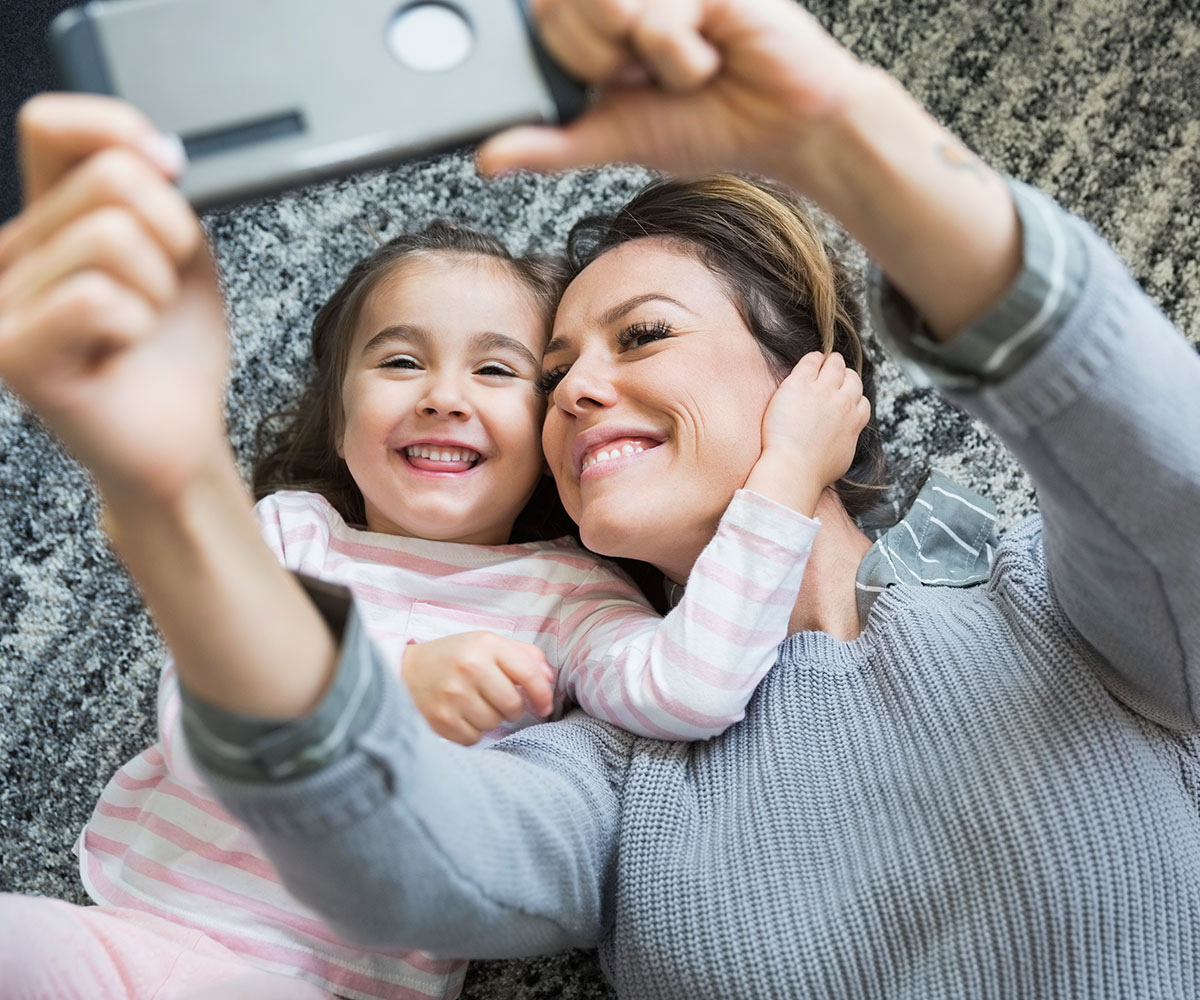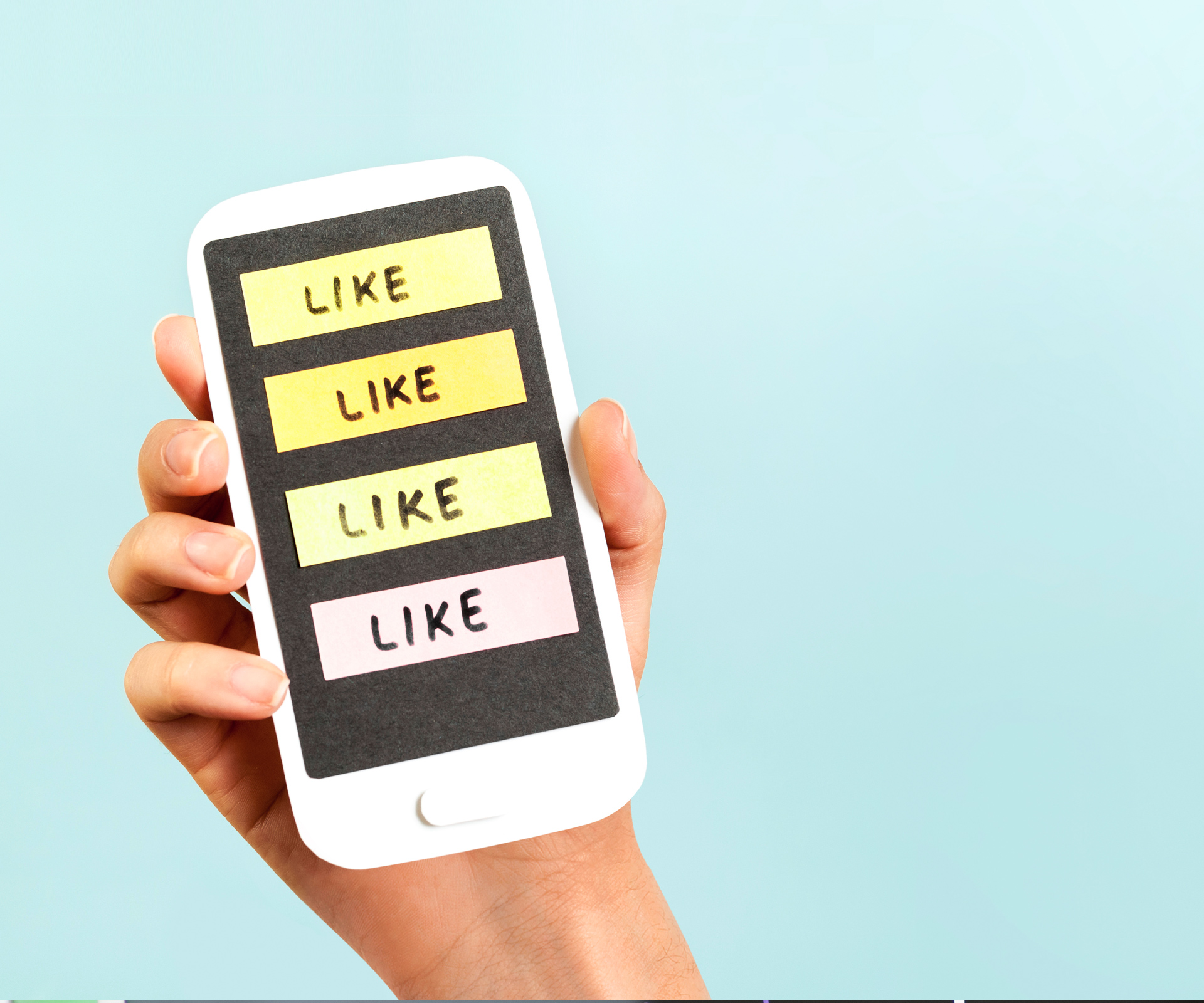Whether you’re a social media aficionado or have no idea what a tweet is, everyone has an opinion on social media use: Are we using it too much? Not taking advantage of the new medium? Is it too addictive? Some can’t go an hour without checking their phones for new social media notifications, hungry for news and information, while others only sporadically check their social media accounts.
But is there a ‘best’ way to use social media?
There seems to be a lot of conflicting noise about whether or not social media is good for our mental health. A quick discussion in the Now To Love office on social media use churns out varying opinions: One argues that social media is addictive and causes us to spend too much time online, whereas others stress that we’re more connected than ever and are more easily able to stay in touch with each other. So where does this leave us – is social media use good or bad?
Jocelyn Brewer, registered psychologist and founder of Digital Nutrition, a guide to best practice, balanced tech use, says it’s not as simple as social media being good or bad – it all comes down to how we use social media.
“We need to consider factors about what is being consumed online and why, when etc. All social media use is not the same. Some might be really practical, like arranging events or keeping up with family overseas, participating in group chats for education or work,” says Brewer.
“Other uses might be less adaptive – like stalking exes, or their new partners, and the thoughts that might go with looking at particular hashtags, for example, I’m not X enough (thin, pretty, smart). It’s very complex and can’t be boiled down to simply good or bad – plus its more about the person, their personality, psychology and stressors than the platforms alone.”

Benefits of social media use
Dr Lauren Rosewarne, senior social scientist from the University of Melbourne and author of Intimacy on the Internet: Media Representations of Online Connections, says that while social media has the potential to be misused, for many people it can be beneficial.
“The technology itself is neither good nor bad: it’s just a communication tool. Like any communication tool – telephone, mail etc – social media can be used positively or negatively,” says Rosewarne.
“Equally, like anything in life we can spend too much of our resources – time or money or self-esteem – on it, making it problematic. But for many people, the speed, efficiency and limited costs of use enhance our lives rather than hinder it.”
Social media can certainly be used positively and offers a myriad of possible benefits if used productively. Facebook, Instagram and Twitter all give users the chance to strengthen their relationships, relieve loneliness and express themselves, among with many other benefits.
“It’s [Facebook] an effective one-stop-shop: it serves as a news source, to keep us in touch with one another, offers a messenger, voice-call and video-call service.
“Instagram’s appeal lies in its simplicity: it is primarily about sharing images, it’s arguably an app less likely to overtake our life in the way that Facebook has the capacity to,” explains Rosewarne.
Social media can also:
Benefit businesses by allowing brands to reach customers
Give users a platform to highlight their interests – including social causes
Help people foster relationships
Assist users in keeping in touch with loved ones who don’t live close by
Promote discussions and activities
Help users find relevant and inspiring content to them with the use of hashtags
Allow brands and celebrities to form a relationship with their fans
Encourage creativity
Help the public stay connected
Allow users to quickly communicate with friends and family
Inform us of news and events happening around the world
Make us laugh with memes and short videos

Social media can help us connect with people living all over the world.
The cons of social media
Like most things, social media is best used in moderation: Excessive or inappropriate use of social media has the potential to be harmful.
When posting statuses or photos online, it’s important to remember that whatever we put online can exist in the virtual world forever – even if it’s deleted (just think of all the celebrities who have angrily tweeted or posted something online and then deleted their post to no avail, as what they put out there is already all over the internet.)
And while many of us don’t have to worry about people saving our posts and photos and sharing them, Dr Lauren Rosewarne says we should think carefully about what we share online.
“We need to remember that whatever we put online has the capacity to exist – in some form – forever. We should remember that everything we post is contributing to our electronic footprint and thus we need to think whether each of our posts is reflective of our values and how we want others (our parents/children/future employers) to see us.”
But it’s not just our electronic footprint we need to be mindful of, social media has the potential to affect our mental health too.
Speaking to Good Health & Wellbeing magazine, psychologist Sara Chatwin said: “Social media has taken over people’s lives. It hurts people, it promotes anxiety and self-loathing.
“I’ve seen a big increase in the negative aspects of it on teens. Whereas I’ve heard people say that making more of a conscious effort to opt out of social media more often is liberating and it makes them feel good.”
And we’re seeing more and more celebrities speak out about the negative effects of social media too.
On her royal tour of Australia, New Zealand, Tonga and Fiji, Duchess Meghan opened up to a group of local residents on Bondi Beach about deleting her social media accounts after the announcement of her engagement to Prince Harry. The Duchess of Sussex reportedly told the locals, who meet each week to surf, do yoga and discuss mental health, that on social media “Flattery and criticism run through the same filter,” and revealed that deleting her social media accounts was “freeing”.
Similarly, musician Harry Styles recently revealed in a phone interview with Timothée Chalamet that his mood is noticeably different when he forgoes social media.
“On a personal level, I feel a noticeable change in how happy I am when I’m not on social media. I’m very aware that if you go on social media, and look, you can find whatever you’re looking for. If you’re looking for bad comments, you’re going to find bad comments. But people still do it. It’s like this weird self-torture.”
Styles said that to combat this, he treats social media like a house party where only three of 26 attendees are nice: “I dip in. I see the friends I want to see and I dip out.”
Perhaps we should all adopt Harry Styles’ approach to social media!
How social media can negatively affect users
Studies have suggested there is a correlation between time spent on Facebook and depression. According to Liberty Voice the more time someone spends on Facebook, the more depressed they become
Social media can impact self-esteem. Users may sometimes compare themselves to the glossy lives people depict themselves as having online, which can lead to jealousy, insecurity and feelings of inadequacy
Social media ‘trolls’ or bullies can send nasty messages online anonymously, spreading hate and negativity
Some people may become addicted to social media
Some users may use social media to communicate with others instead of seeing them face to face or calling them, which can lead to feelings of isolation rather than closeness

Duchess Meghan had an active voice on social media prior to getting engaged to Prince Harry. This image was posted on Meghan’s now-deleted Instagram @meghanmarkle. Duchess Meghan also ran an Instagram account for her lifestyle blog The Tig.
How to have a healthier relationship with social media
1. Consider why you want to post something before uploading it
“Social media sets up feedback and reinforcement loops that people might create poor habits and compulsions around. To reshape your relationship to your favourite social media platforms you might want to rethink what you’re seeking and why,” says Brewer.
“I suggest the three M’s of Digital Nutrition – mindful, meaningful and moderate. You can learn more about this here.
“Consider what you’re aiming to achieve – who you are posting for and what response or reaction are you angling for? How does this positively reinforce who you are and how might you get this approval from more authentic interactions?”
2. If you feel you’re using social media too much and would like to cut back your screen time, try deleting apps off your phone
“Deleting the app from your phone – and therefore, restricting your use to the desktop – limits the opportunities for mindless scrolling.
“Alternatively, there are a range of apps you can install on your phone to measure your use, limit your use and alert you if you’re spending too much time on social media – these apps include Offtime, Moment and BreakFree,” says Rosewarne.
3. Turn off push notifications
While you don’t need to turn off push notifications for every app on your phone (perhaps keep the notifications you find useful), muting work emails, overactive messaging groups, games and news alerts (if they are too frequent) can benefit your mental health, according to Quartzy.
4. Switch your phone’s colour filters to ‘greyscale’
Our phones are designed to be as stimulating as possible – hello colourful apps and wallpapers! – and turning off the colour on your phone may make it less entertaining to look at.


